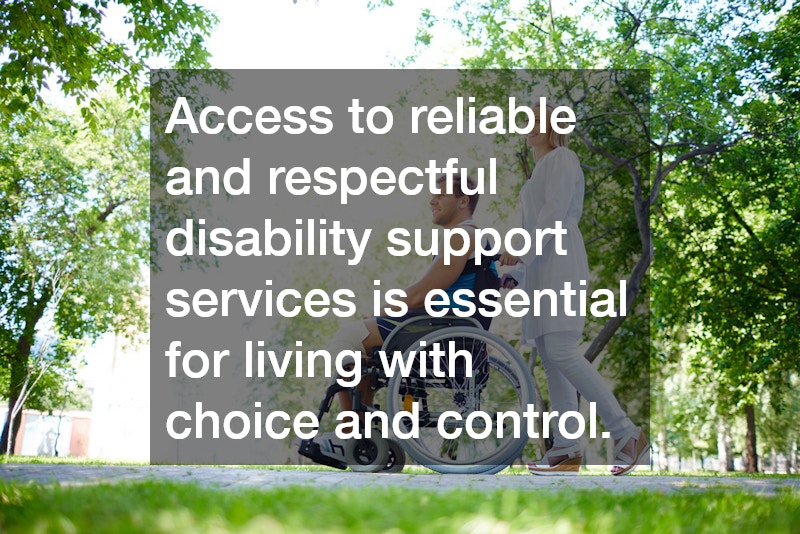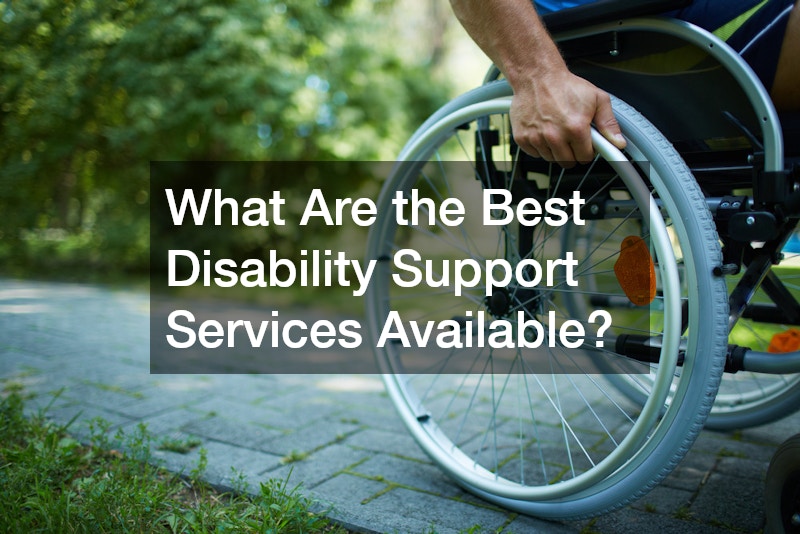Disability support services play a vital role in helping individuals live with greater independence, dignity and comfort. Whether someone needs assistance with daily living, community participation or navigating complex systems like the NDIS, the right services can significantly improve quality of life.
Choosing the best disability support services depends on a person’s unique needs, preferences and goals, and understanding what’s available is the first step.
Personalised In-Home Support
One of the most commonly accessed disability support services is in-home care. These services are tailored to suit a person’s daily routines and may include help with dressing, bathing, meal preparation or medication management. In-home support is especially valuable for people who want to maintain their independence while receiving professional assistance in a familiar environment.
This type of support often extends beyond just physical tasks. Carers can offer companionship and emotional encouragement, building trust and reducing isolation. Many providers now match clients with support workers based on shared interests, language or cultural backgrounds, which helps create more meaningful and respectful relationships.
For individuals with higher support needs, in-home services can include overnight or 24-hour care. This ensures safety and comfort while allowing people to remain at home rather than moving into residential facilities.
Community Access and Social Participation
Access to the community is another essential focus of quality disability support services. Programs that support community engagement allow people with disabilities to participate in activities like sports, volunteering, hobbies and cultural events. These services promote inclusion and help individuals develop confidence, social skills and a stronger sense of belonging.
Support workers may provide transportation to events or accompany clients as they explore local spaces. Group programs can be especially beneficial, giving participants the chance to meet peers and form new friendships. Community support also empowers individuals to build independence by learning how to navigate public transport, shop for essentials or access local services.
The most effective community access programs are person-centred and flexible. They adjust to an individual’s goals and interests rather than forcing people into a one-size-fits-all model. Good providers will regularly review progress and make changes based on feedback from the person receiving support.
Therapy and Allied Health Services
Therapy-based disability support services are essential for many people living with physical, intellectual or psychological conditions. These services can include physiotherapy, occupational therapy, speech pathology and psychological counselling. Allied health professionals work to improve function, communication and overall well-being, often forming part of a broader care team.
These therapies help people gain skills that improve daily life. For example, occupational therapists can suggest assistive technologies or home modifications that make tasks easier and safer. Speech therapists support communication and swallowing issues, while psychologists can offer coping strategies, mental health support and behavioural guidance.
When selecting therapy services, it’s important to consider how well the professionals collaborate with other parts of a person’s support plan. Integrated teams that communicate effectively can provide more consistent and targeted care, ensuring better outcomes over time.
Supported Independent Living
For individuals who want to live independently but require ongoing assistance, supported independent living is a strong option. These disability support services help people reside in their own home or a shared living arrangement with support from trained staff. Assistance may include help with housework, budgeting, cooking or managing appointments.
The goal of supported living is to provide just enough help so that individuals can live as independently as possible. Some people receive only a few hours of support per week, while others may need daily check-ins or overnight assistance. The level of support is usually based on an assessment of needs and adjusted as circumstances change.
This model promotes autonomy and offers greater control over one’s environment and routine. It is especially popular with young adults transitioning from school to adulthood who want to build life skills in a supportive setting.
Finding the Right Provider
With so many disability support services available, choosing the right provider requires careful consideration. It’s important to look for organisations that offer transparent communication, personalised planning and trained staff. A good provider will take the time to understand each client’s goals and work collaboratively to create a tailored support plan.
Reviews, recommendations and provider experience in specific disabilities can also guide decision-making. Some providers specialise in working with children, others focus on mental health or aged care transitions. It’s a good idea to ask about service flexibility, availability in your area and how changes to care can be made if your needs evolve.
Access to reliable and respectful disability support services is essential for living with choice and control. From in-home care and therapy to community engagement and supported living, each type of service offers something different depending on a person’s goals and situation.
If you or someone you care for is navigating disability services for the first time or re-evaluating existing supports, taking the time to understand your options will make the process smoother. Choosing the right provider can unlock new opportunities for independence, empowerment and meaningful participation in everyday life.




